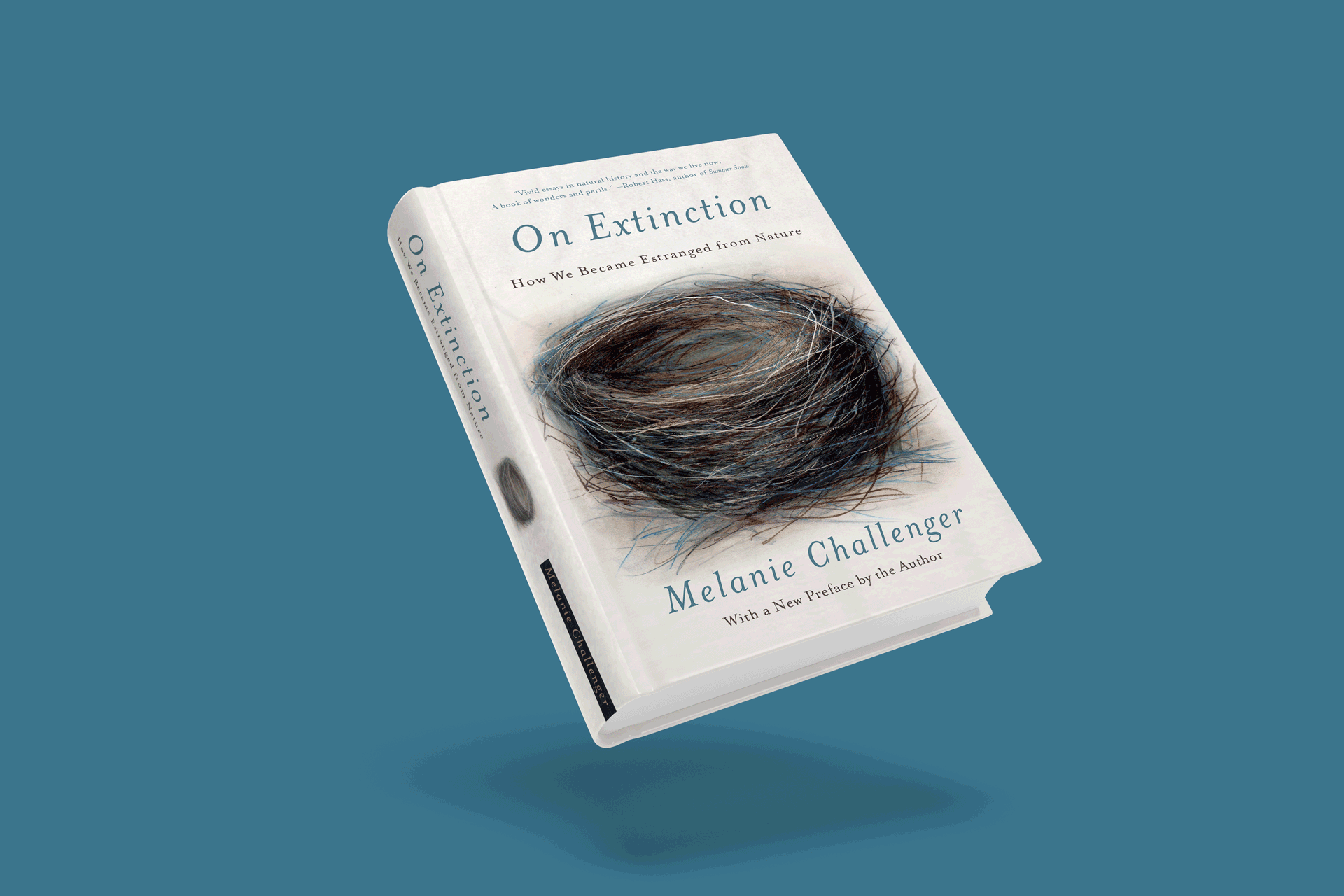MELANIE CHALLENGER'S BOOKS ON
The Human-Nature Relationship
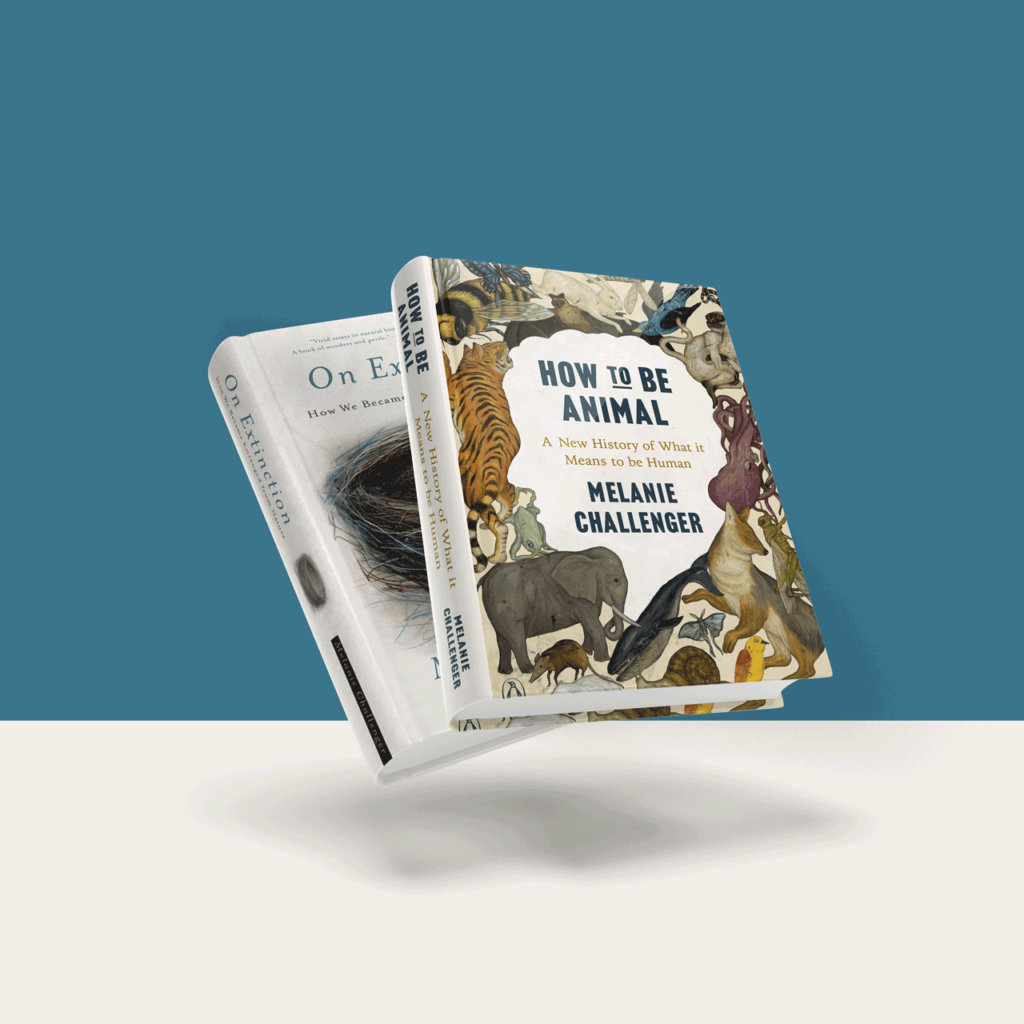
MELANIE CHALLENGER'S
How to Be Animal
A New History of What it Means to Be Human
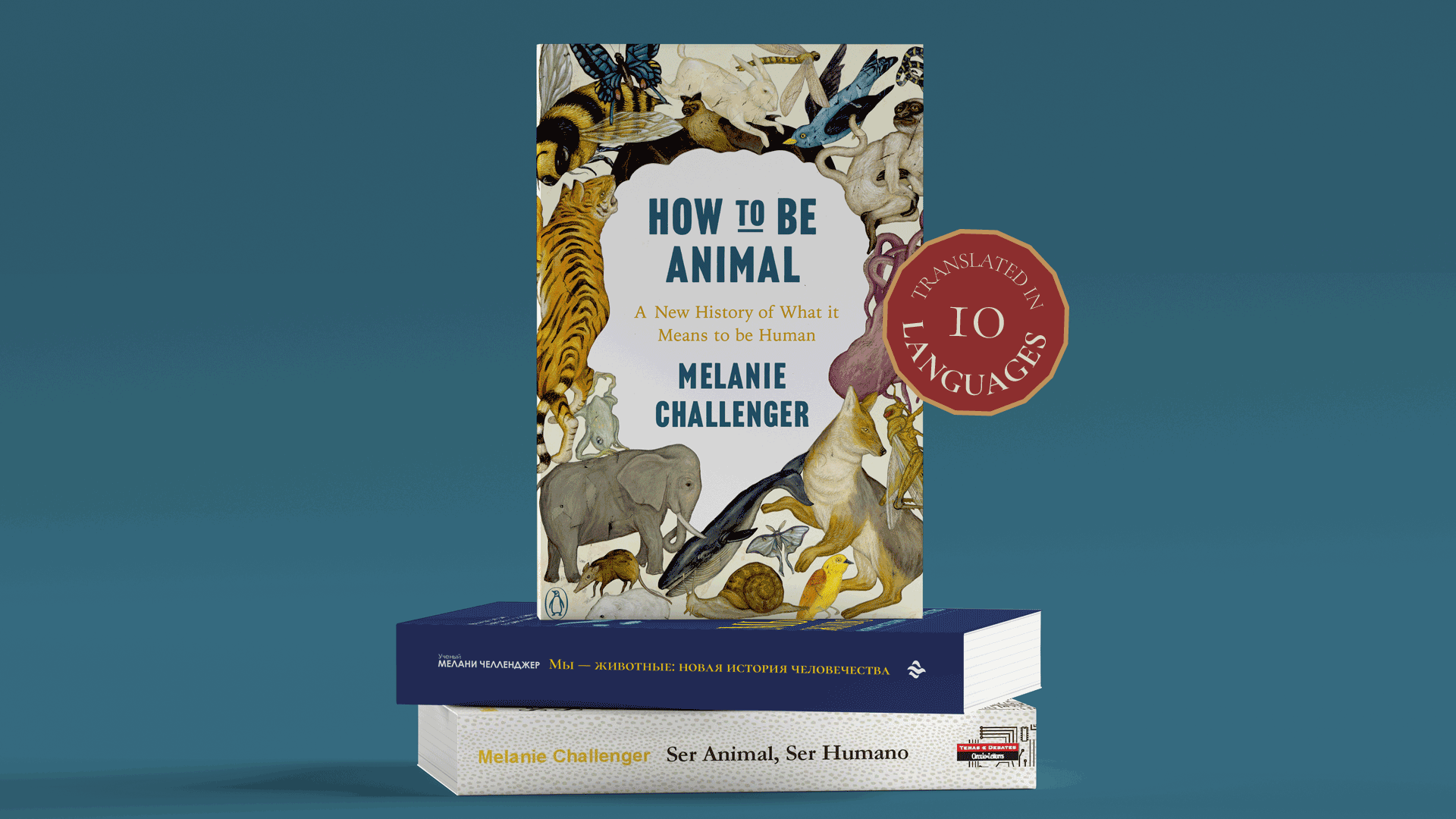
“The best critique of the myth of human exceptionalism I have read... Read and digest this book, and you will not only be wiser but also happier.”
— JOHN GRAY, author of Straw Dogs: Thoughts on Humans and Other Animals
Humans are the most inquisitive, emotional, imaginative, aggressive and baffling animals on the planet, but how well do we really know ourselves? How to Be Animal will rewrite the remarkable human story and argue that at the heart of our psychology is a profound struggle with being animal. As well as piecing together the mystery of how this psychology evolved, the book examines the wide-reaching ways in which it affects our lives, from our politics to the ways we distance ourselves from other species.
A blend of natural and environmental history, and philosophy, How To Be Animal will take in our ancient past and bring us into a near future of artificial intelligence and bioengineered life. It is a book for anyone who’s ever puzzled about the meaning of human existence and the wide variety of views on what life is and how it matters.
Related Talks
“A beautifully written, moving and important book.”
— PUBLISHERS WEEKLY
Realizing the link between her own estrangement from nature and the cultural shifts that led to a dramatic rise in extinctions, award–winning writer Melanie Challenger travels in search of the stories behind these losses. From an exploration of an abandoned mine in England to an Antarctic sea voyage to South Georgia’s old whaling stations, from a sojourn in South America to a stay among an Inuit community in Canada, she uncovers species, cultures, and industries touched by extinction. Accompanying her on this journey are the thoughts of anthropologists, biologists, and philosophers who have come before her. Drawing on their words as well as firsthand witness and ancestral memory, Challenger traces the mindset that led to our destructiveness and proposes a path of redemption rooted in our emotional responses. This sobering yet illuminating book looks beyond natural devastation to examine “why” and “what’s next.”
MELANIE CHALLENGER (ANTHOLOGY EDITOR)'S
Animal Dignity
Philosophical Reflections on Non-Human Existence
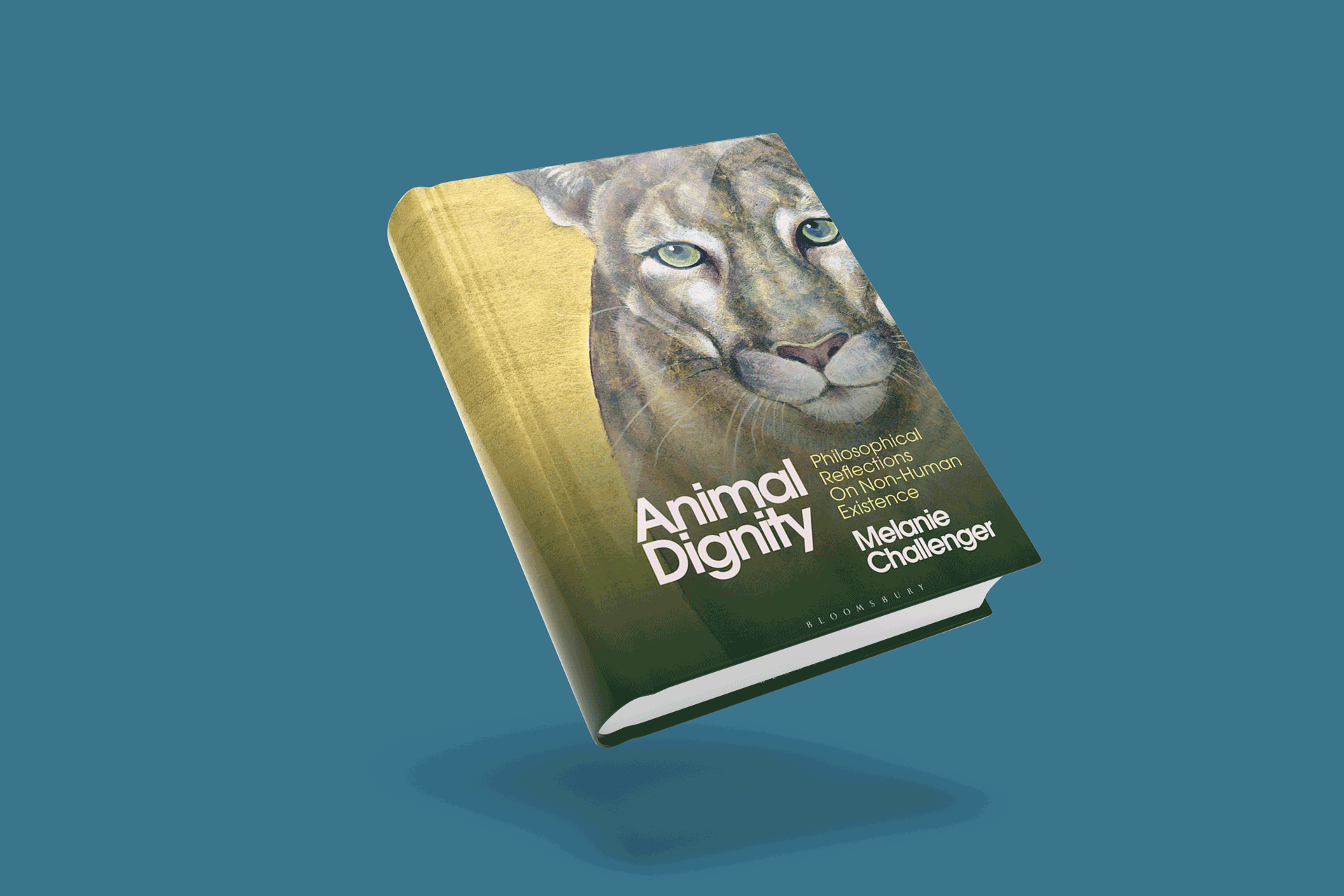
How do we understand the dignity and value of non-human animals? Leading philosophers, ethnologists, and writers contribute to this interdisciplinary and wide-ranging account of animal dignity.
With a foreword by world-leading primatologist, Jane Goodall DBE, the 20 essays collected here make the case for applying the concept of dignity beyond its usual humanist framework and introduce readers to animal dignity in history, law, science, philosophy and literature. United in recognising the dignity of nonhuman animals, these essays suggest how we might ensure a flourishing environment in times of ecological destruction and climate breakdown. Historians, primatologists, philosophers, novelists, and artists approach the concept of animal dignity creatively, offering interpretations that are academically rigorous, alongside ones that are personal and literary. This variety of engagement knits together a fruitful way forward for progressive relations between all species.
Related Talks
MELANIE CHALLENGER'S
Stolen Voices
Melanie’s first nonfiction book was an edited volume, an epistolary history of twentieth-century conflict from the eyes of young people. The book came out of an interest in the origins and consequences of war and conflict, and collaborations with organisations such as Imperial War Museum, London, Amnesty International, and Anne Frank House. She compiled and edited the volume with her friend and colleague, Zlata Filipovic. Zlata’s war diary of her harrowing experiences in the Balkans, published in 1993, made her a globally recognized spokesperson for children affected by military conflict. In Stolen Voices, she and Melanie gathered fifteen diaries of young people coping with war, from World War I to the struggle in Iraq, to provide a new means of understanding how conflicts echo through a century and how wide-reaching are their effects on those caught up in them.
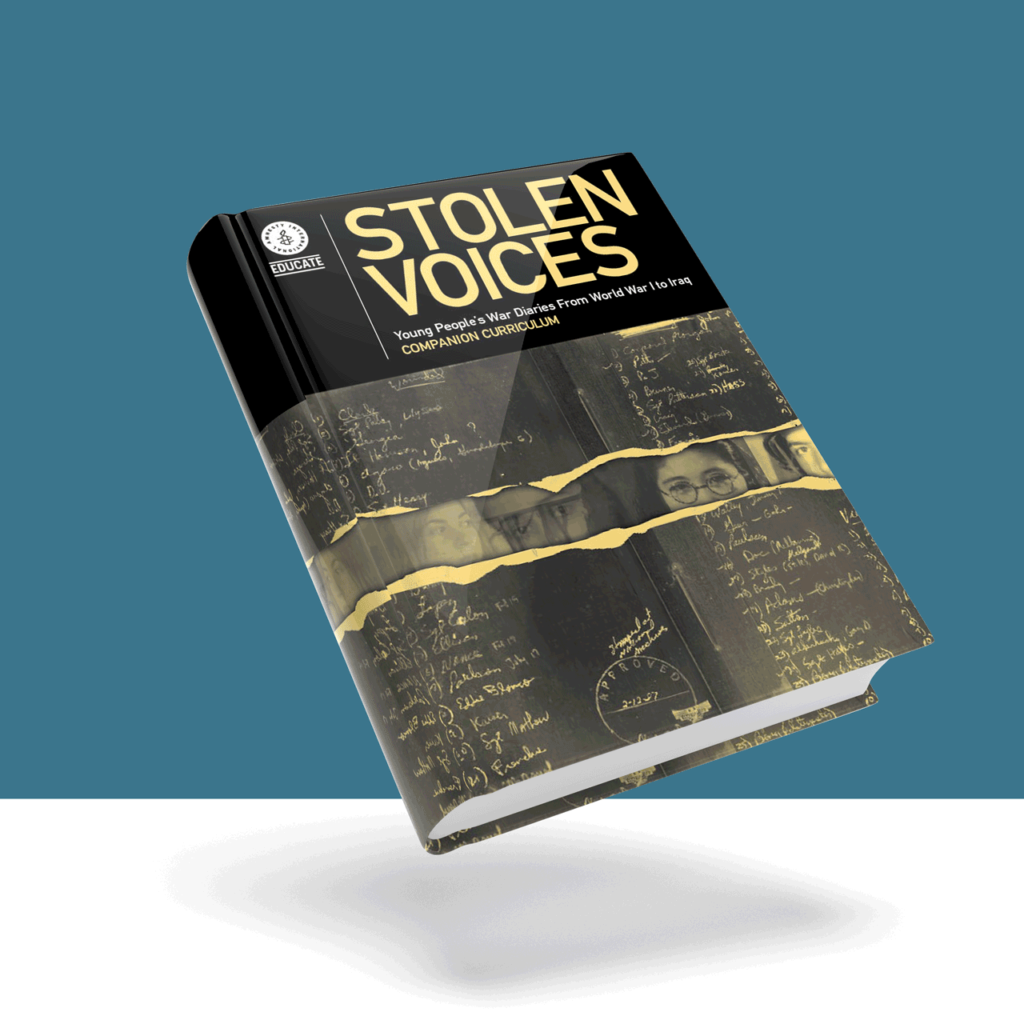
MELANIE CHALLENGER'S
Stolen Voices
Young People's War Diaries from World War I to Iraq
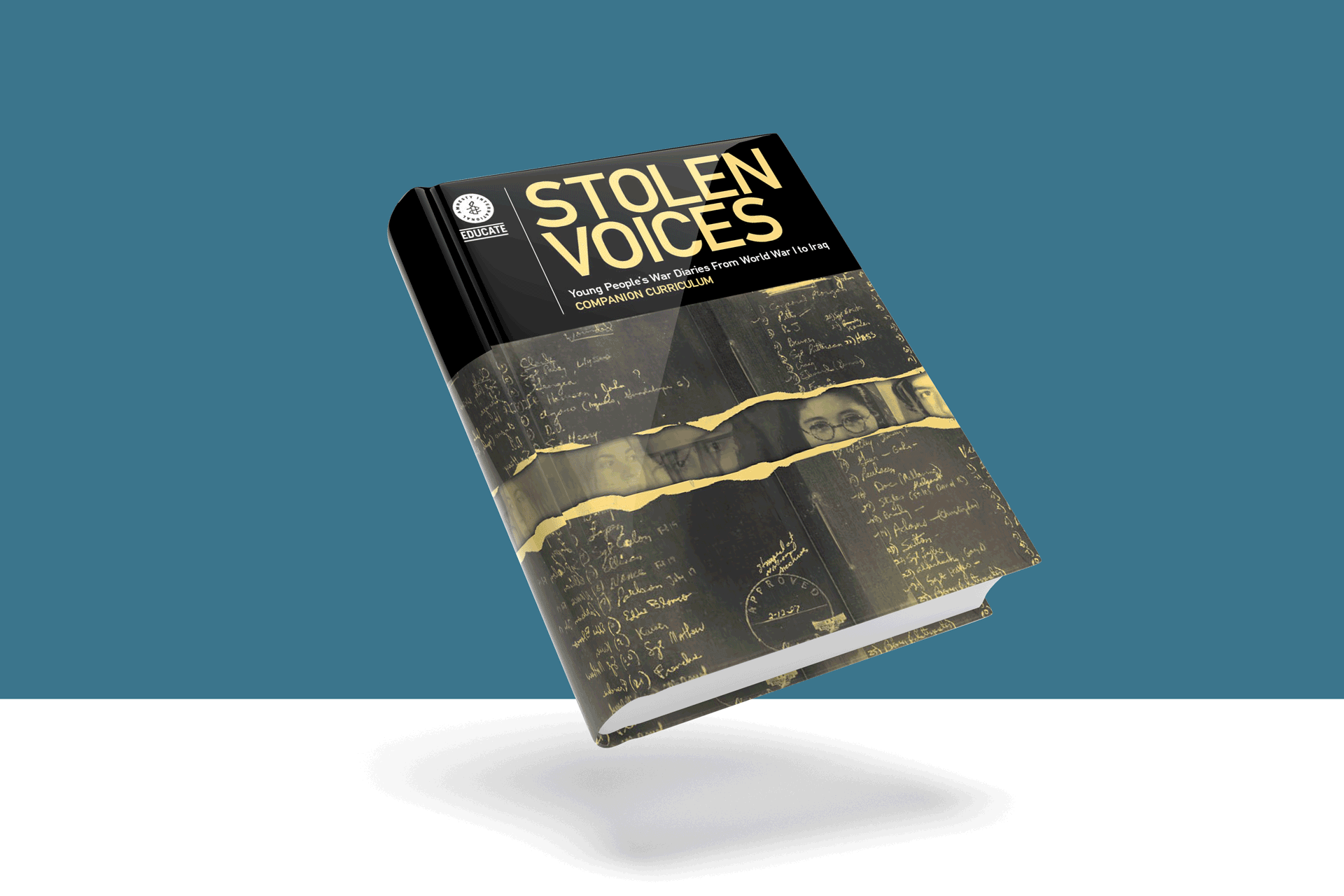
“Some books can be classified as highly recommended, but this work goes beyond that to be considered required reading.”
— AMERICAN LIBRARY JOURNAL
“This inspiring collection of children’s war diaries provides a compelling window into life during conflict…Through these myriad voices, Filipovic and Challenger create a gripping historical narrative whereby war stories are told not through facts and dates but through the honest impressions of youth.”
— PUBLISHERS WEEKLY
In 1992 Zlata Filipovic found herself caught in the siege of Sarajevo. The diary that she had begun as a carefree twelve year old became a war diary – a record of the devastation that was unfolding around her – and a testament to a child’s life under gunfire. Zlata’s Diary went on to be published in 35 languages and is studied in schools around the world.
Over two years, Zlata and Melanie researched conflicts from around the world, searching for the diaries of children, the most impartial observers of war. From hundreds of texts, they compiled a collection of diaries from the First World War to the recent Iraq invasion. Many of the diaries had never been published before or had been forgotten. The purpose of the collection was to provide an alternative reading of twentieth century conflict, most especially for young people. Stolen Voices has been translated into thirteen languages worldwide.
Amnesty International USA developed Stolen Voices into a companion curriculum guide on human rights.
In 2007, Melanie organised a music education project with the help of Naomi Glass, in collaboration with the Imperial War Museum and British composer Tarik O’Regan, and teachers in the borough of Merton, South London. Tarik O’Regan composed a twenty-minute choral work for youth and adult choirs, using words from Stolen Voices. School children took part in an education project using music to discover the history of conflict, along with discussions with diarists from conflicts around the world. Tarik’s Stolen Voices was premiered at Imperial War Museum, London in September 2007 for United Nations International Day of Peace. The piece is published by Chester Music Ltd.

